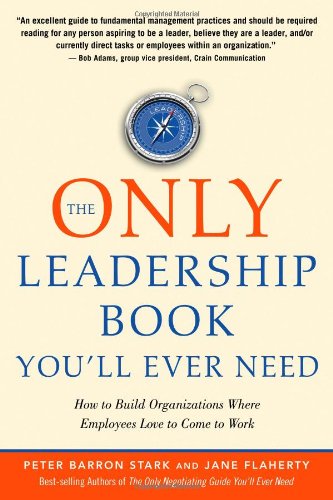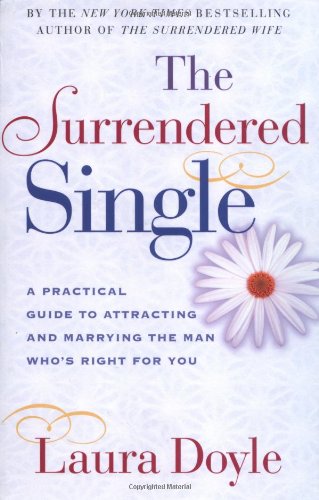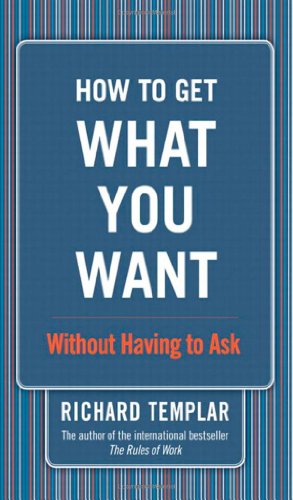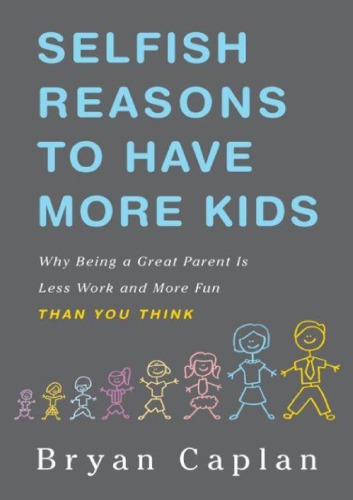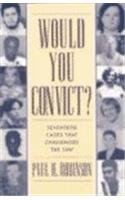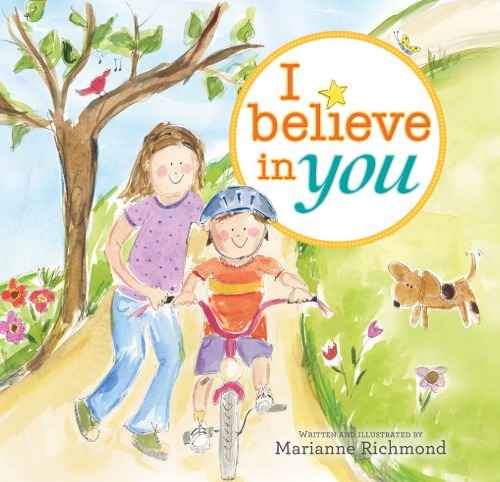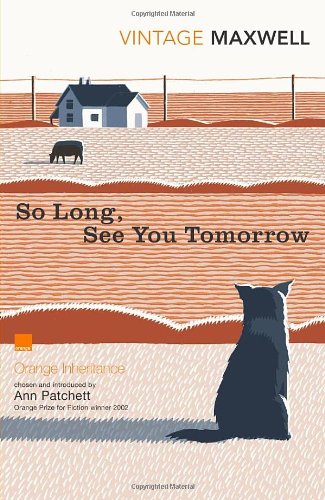موضوعات
آموزش و پرورش
ادبیات و زبان
پزشکی، دندانپزشکی و داروسازی
تاریخ و جغرافیا
داستان و رمان
دیگر
دین و فلسفه
روانشناسی
ریاضیات و آمار
سلامتی، تناسب اندام و رژیم غذایی
شیمی و پلیمر
علوم اجتماعی و حقوق
علوم زیستی و بیوتکنولوژی
فیزیک و نجوم
کامپیوتر و اینترنت
کتابهای کودکان و داستان
کسب و کار و اقتصاد
کشاورزی و دامپزشکی و غذا
معماری
مهندسی و فناوری
هنر و تئاتر
محصولات
The Only Leadership Book You'll Ever Need: How to Build Organizations Where Employees Love to Come to Work - Original PDF
نویسندگان: خلاصه: “Stark and Flaherty expertly show managers how to get a clear, compelling vision of professional excellence... a must-read for anyone who wants to know how to create and retain a team committed to delivering the highest standards to their customers.” Anthony Robbins, best-selling author of Awaken the Giant Within and Unlimited Power“To succeed in business, treat your employees well, and they will treat your customers well. Peter Stark and Jane Flaherty get it! Read this book and keep your people engaged!”Ken Blanchard, co-author of The One Minute Manager“… an excellent guide to fundamental management practices and should be required reading for any person aspiring to be a leader, believe they are a leader, and/or currently direct tasks or employees within an organization. It should also be mandatory reading for HR staff.” Bob Adams, group vice president, Crain Communications“…offers strategies that are critical to increasing organizational excellence, especially in these turbulent times. If you want to energize your employees so they are giving their best work to you and your customers then this book is mandatory reading.” Jon Peters, president, The Institute for Management StudiesEvery organization faces challenges and hardships. The Only Leadership Book You’ll Ever Need teaches leaders how to overcome their most difficult obstacle: employee engagement. By pinpointing specific areas leaders can focus on and change,this book shows how one leader can effectively change the entire workplace environment-- for the better.Topics addressed include:The 10 Keys to Workplace Excellence.The 11 Stupid Things Managers Do to Mess Up Workplace Excellence.76 Strategies to Effectively Lead and Engage Employees.Timely and accessible, The Only Leadership Book You’ll Ever Need is an essential book for every executive and manager.The Surrendered Single: A Practical Guide to Attracting and Marrying the Man Who's Right for You - Original PDF
نویسندگان: خلاصه: THIS CONTROVERSIAL APPROACH TO DATING HAS GIVEN THOUSANDS OF SINGLE WOMEN EVERYTHING THEY NEED TO ATTRACT ROMANCE, INTIMACY, AND A MARRIAGE PROPOSAL. Surrendered Single doesn't have to look for Mr. Right -- she attracts him. The principles presented in The Surrendered Single are simple: When you try to control who asks you out and when a man will call, or if you try to corner him into a commitment, you drive him away. When you let him woo you instead, you enjoy the pleasure of being pursued. You feel confident and feminine. Dating becomes fun again. Marriage follows. You stop going it alone. Practical and compassionate, The Surrendered Single is a step-by-step guide that shows you how to: ASK MEN TO INVITE YOU OUT SO THAT YOU ALWAYS HAVE A DATE AVOID THE REMORSE OF "I WISH I HADN'T SAID..." BECOME YOUR BEST SELF AND ATTRACT GOOD MEN Whether you're recovering from a breakup or a divorce, are on the dating scene, or want your romance to deepen, The Surrendered Single will bring you the relationship you desire with a man you love -- and who loves you.Cut Your Grocery Bill in Half with America's Cheapest Family: Includes So Many Innovative Strategies You Won't Have to Cut Coupons - PDF
نویسندگان: خلاصه: America's Cheapest Family shows readers how to save up to $3,000 annually on groceries with their proven strategies, tips, tools, and tricks. The average American family spends 10 to 15 percent of its take-home pay on groceries. Cut Your Grocery Bill in Half gives them a sure-fire opportunity to reduce that number forever. With the proven plan in this book, the average family can save more than $3,000 a year on its grocery bill. "Can cutting coupons do that?" a consumer might ask. Of course, these money-saving experts teach coupon-clipping strategies, but they don't stop there. Readers learn how to plan their shopping to save big bucks, effectively store food and save cash, identify products that save time and money, beat the grocer at pricing games, and more! The Economides learned to deliver healthy, tasty food to their family of seven on $350 a month. In this authoritative manual, the average family can follow their lead and fill its grocery cart without emptying its wallet.Endorsements:"Many people think that it's impossible to reduce your grocery bill by 50%. But you can. Steve and Annette Economides provide step-by-step instructions in "Cut Your Grocery Bill in Half." Tools that are practical and easy to follow. No special shopping or cooking skills required. Anyone can see a surprising reduction in their grocery budget if they follow the Economides' methods. And, best of all, the savings begin right away. You don't need to finish the whole book to benefit. You'll find money-saving ideas that you can put to use in the first chapter, and every chapter thereafter. Normally I advise people to check books out of the library and save the cost of the book. But this is one do-it-yourself guide to lower grocery bills that you'll want to have on your bookshelf or kitchen countertop."Gary Foreman, Publisher, The DollarStretcher.com "If you are eager to save on groceries, but don't always have the time to clip coupons, this book is for you! It's perfect if you're interested in more ways to cut costs, reduce waste, and get organized. This is an awesome book for the novice or the skilled cook."Tawra Kellam and Jill Cooper-editors of LivingOnADime.com and authors of "Dining On A Dime Cookbook" "I've known Steve and Annette for several years and they definitely live what they believe. If you're serious about spending less money at the grocery store, this book offers some practical ways to achieve your goal. When it comes to stretching your dollar, I know of no one with more experience than Steve and Annette."JJ Heller-Singer/SongwriterHow to Get What You Want...: Without Having to Ask - PDF
نویسندگان: خلاصه: Tired of not getting what you want? Don't know how to ask for it? Best-selling author Richard Templar brings his inimitable blend of originality, imagination, wisdom, and straight talk to the challenges of negotiation, persuasion, and influence. Templar offers up 100 clever, simple, pain-free ways to get people to happily say "yes" to you! Templar is the world-renowned author of best-sellers like The Rules of Money and The Rules of Life. In this new book, he offers practical principles and strategies covering a wide range of situations, both at work and beyond. You'll learn how to get what you want without saying a word… and, for those rare occasions when you have to ask, you'll find the techniques and words that'll get the job done. Every solution gets its own "bite-size" two-page spread, making this book incredibly easy to read--and use. Some people seem to get what they want consistently and effortlessly. It's not luck: it's knowing how. Read this fresh, funny, and relentlessly practical book, and you'll know how, too.Selfish Reasons to Have More Kids: Why Being a Great Parent is Less Work and More Fun Than You Think - PDF
نویسندگان: خلاصه: DURING MY LIFETIME, THE AMERICAN FAMILY HAS DRASTICALLY downsized. Women in their forties are about twice as likely to haveone child—or none—as they were thirty years ago. Big families have all but disappeared. In 1976, 20 percent of women in their early fortieshad five or more kids; by 2006, less than 4 percent did.If you ask people to explain why we don’t have as many kids as we used to, the answers are all over the place. “People can’t afford bigfamilies anymore,” “Women have real careers now,” “We don’t need kids to help out with farm work,” “Women want to live like men,”“Americans have lost faith in God.” In Athens, the Greeks blame air pollution.If you make the question personal, however, the answers are very much alike. When asked, “Why don’t you have as many kids as weused to?” both men and women respond with groans. As best I can tell, the English translation of these groans is “Kids are a lot of work,” ormaybe “Imagine all the dirty diapers and sleepless nights,” or perhaps “Are you trying to kill me?”To be brutally honest, we’re reluctant to have more children because we think that the pain outweighs the gain. When people compare thegrief that another child would give them to the joy that the child would bring, they conclude that it’s just not worth it. As Bill Cosby put it, “Thereason we have five children is because we do not want six.”You could easily call this a very selfish outlook. How can you focus exclusively on whether another child would make you happier? Whatabout the child? Unless your baby is truly unlucky, he will almost certainly be happy to be alive. Aren’t you? This is your child we’re talkingabout. If you have to make yourself a little less happy in order to give a son or daughter the gift of life, shouldn’t you?The question is serious, but I’m going to dodge it. While I accept the natalist view that more births should be encouraged because theymake the world a better place, asking others to sacrifice their happiness for the good of the world seems futile. Preaching againstselfishness is usually about as productive as nagging a brick wall. When people weigh the costs and benefits of having another child, I’m notgoing to call them sinners for using a scale.The claim of this book, rather, is that current and prospective parents have accidentally tipped their scales against fertility. We may feelsure that the pursuit of happiness and kids (or at least more kids) are incompatible, but it is in the average person’s enlightened self-interestto have more kids. That’s right—people are not having enough children for their own good. Prospective parents need to take another lookbefore they decide not to leap. Current parents need to take another look before they decide not to leap again.My theory is not one-size-fits-all. The claim is not that everyone should have lots of kids, but that the average person should have morekids. More than what? More than they were otherwise planning to have. If you live in a tiny urban apartment and love fancy foreign vacations,this might mean one kid instead of zero. If you live in a suburban McMansion and love theme parks, this might mean five kids instead ofthree. I’m here to provide information, not run your life.There are many selfish reasons to have more kids, but there are four big reasons to put on the table right away:First, parents can sharply improve their lives without hurting their kids. Nature, not nurture, explains most family resemblance, soparents can safely cut themselves a lot of additional slack.Second, parents are much more worried than they ought to be. Despite the horror stories in the media, kids are much safertoday than they were in the “Idyllic Fifties.”Third, many of the benefits of children come later in life. Kids have high start-up costs, but wise parents weigh their initial sleepdeprivation against a lifetime of rewards—including future grandchildren.Last, self-interest and altruism point in the same direction. Parents who have another child make the world a better place, soyou can walk the path of enlightened selfishness with a clear conscience.Would you convict?: seventeen cases that challenged the law - PDF
نویسندگان: خلاصه: A police trooper inspects a car during a routine traffic stop and finds a vast cache of weapons, complete with automatic rifles, thousands of rounds of ammunition, and black ski masks-a veritable bank robber's kit. Should the men in the car be charged? If so, with what? A son neglects to care for his elderly mother, whose emaciated form is discovered shortly before she dies a painful death. Is the son's neglect punishable, and if so how? A career con man writes one bad check too many and is sentenced to life in prison-for a check in the amount of $129.75. Is this just? A thief steals a backpack, only to find it contains a terrorist bomb. He alerts the police and saves lives, transforming himself from petty criminal to national hero. These are just a few of the many provocative cases that Paul Robinson presents and unravels in Would You Convict? Judging crimes and meting out punishment has long been an informal national pasttime. High-profile crimes or particularly brutal ones invariably prompt endless debate, in newspapers, on television, in coffee shops, and on front porches. Our very nature inclines us to be armchair judges, freely waving our metaphorical gavels and opining as to the innocence or guilt-and suitable punishment-of alleged criminals. Confronting this impulse, Paul Robinson here presents a series of unusual episodes that not only challenged the law, but that defy a facile or knee-jerk verdict. Narrating the facts in compelling, but detached detail, Robinson invites readers to sentence the transgressor (or not), before revealing the final outcome of the case. The cases described in Would You Convict? engage, shock, even repel. Without a doubt, they will challenge you and your belief system. And the way in which juries and judges have resolved them will almost certainly surprise you.Twilight, True Love and You: Seven Secret Steps to Finding Your Edward or Jacob - Original PDF
نویسندگان: خلاصه: s your boyfriend or next boyfriend going to be ‘Your Edward’?Is he ‘Your Jacob’?This is the question millions of you all over the world are askingafter reading Stephenie Meyer’s Twilight series. The story is sopowerful that it has changed the way you look at your own lovelife. In some ways, this could be a good thing. You’re no longerwilling to settle for someone who doesn’t love you enough.But there are dangers, too. The romantic ideas portrayed inTwilight may lead you to a boyfriend who cannot make youhappy and might even be dangerous.Star Wars and Philosophy: More Powerful than You Can Possibly Imagine - PDF
نویسندگان: خلاصه: The Star Wars films continue to revolutionize science fiction, creating new standards for cinematographic excellence, and permeating popular culture around the world. The films feature many complex themes ranging from good versus evil and moral development and corruption to religious faith and pragmatism, forgiveness and redemption, and many others.The essays in this volume tackle the philosophical questions from these blockbuster films including: Was Anakin predestined to fall to the Dark Side? Are the Jedi truly role models of moral virtue? Why would the citizens and protectors of a democratic Republic allow it to descend into a tyrannical empire? Is Yoda a peaceful Zen master or a great warrior, or both? Why is there both a light and a dark side of the Force? Star Wars and Philosophy ponders the depths of these subjects and asks what it truly means to be mindful of the "living force."So Long, See You Tomorrow - PDF
نویسندگان: خلاصه: This Orange Inheritance Edition of "So Long, See You Tomorrow" is published in association with the Orange Prize for Fiction. Books shape our lives and transform the way we see ourselves and each other. The best books are timeless and continue to be relevant generation after generation. "Vintage Classics" asked the winners of The Orange Prize for Fiction which books they would pass onto the next generation and why. Ann Patchett chose "So Long, See You Tomorrow". In rural Illinois, two tenant farmers share much, finally too much, until jealously leads to murder and suicide. A tenuous friendship between lonely teenagers - the narrator, whose mother has died young, and Cletus Smith, the troubled witness to his parent's misery - is shattered. After the murder and upheavals that follow, the boys never speak again. Fifty years on, the narrator attempts a reconstruction of those devastating events and the atonement of a lifetime's regret. "The novel comes from a place so deep inside the human soul that I cannot imagine a time its wisdom would not feel fresh and applicable". (Ann Patchett).آیا کتاب مورد نظر هنوز بر روی سایت قرار نگرفته است؟ جای نگرانی نیست! کافی است بر روی گزینه سفارش کتاب کلیک کرده و درخواست خود را ثبت کنید. در کمتر از چند ساعت کتاب شما را آماده خواهیم کرد.
